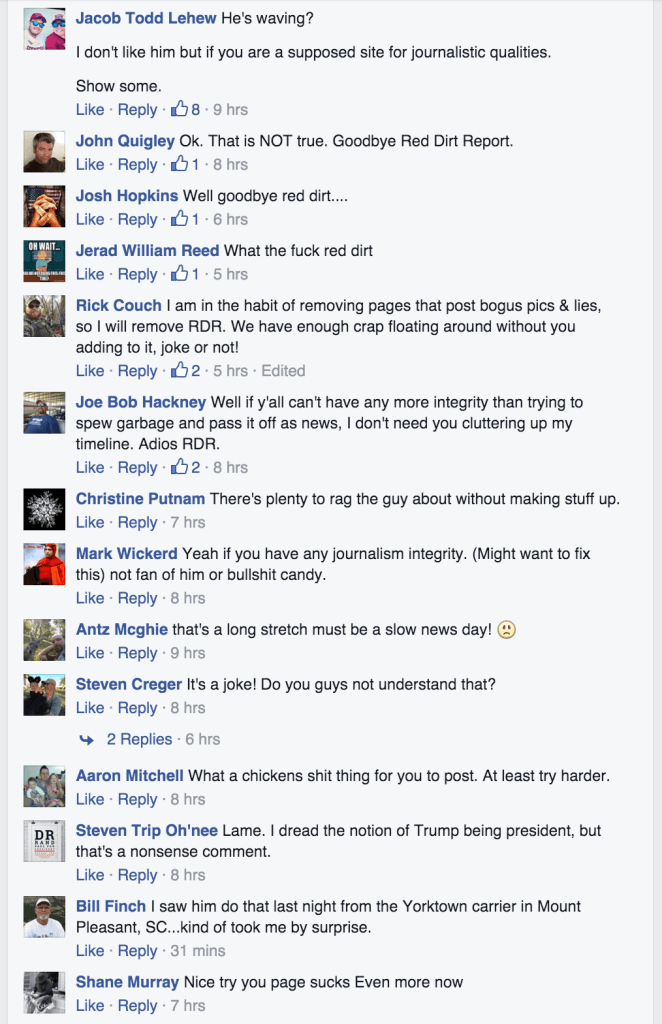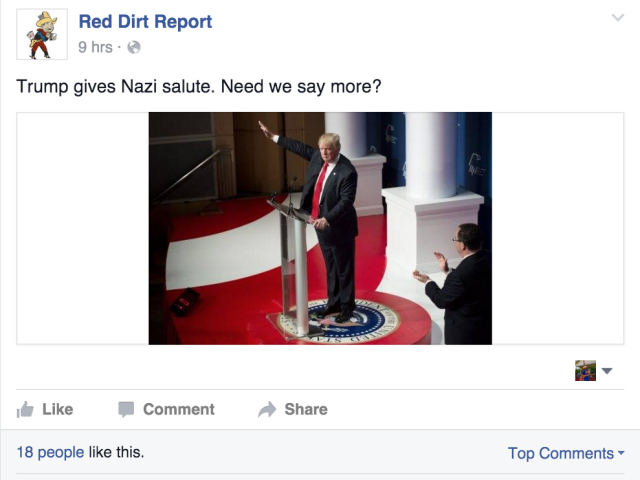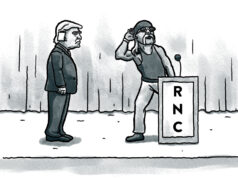
Ridiculous. Dishonest. Childish.
Asked to characterize the above Facebook post from the Red Dirt Report in a single word Tuesday, two friends and I were harsh.
Red Dirt Report readers were harsher.

Yikes. For a journalism site, that’s mighty reader backlash to leave unaddressed.
Sure, a man named Steven Creger defended RDR’s post as “a joke,” but no official comment — or even acknowledgement of reader anger — came from RDR, or even mascot Rusty.
In truth, I’m more surprised that so many people called the post out for dishonesty than that it was made at all. Perhaps readers are not ready for the institution of journalism to be doomed after all.
Of course, various people all over the Internet have been calling Donald Trump a Nazi as a result of his incredulous “policy” proposal that would keep Muslims from entering America until — to paraphrase — “we can, uhh, figure out what’s going on.”
RELATED
“If Trump wins, conventional wisdom loses, again” by John Rowley
People have been calling the Republican presidential frontrunner all sorts of things since he launched his campaign by slandering a great deal of Mexicans and Mexican-Americans this summer.
Of course, this current “Trump Nazi” moment says a great deal about the man who opponent Jeb Bush’s dark money group has called a “narcissistic BULLYionaire.” It says he is legitimately off the rails of the American mainstream, and it says that roughly 20 to 30 percent of likely Republican primary voters may well be right there with him.
But what the “Trump Nazi” moment says about the Red Dirt Report is relevant, too, especially if it wants to be taken seriously for responsible political coverage — something Oklahoma greatly lacks.
RELATED
“Donald Trump called me a ‘terrible person’” by William W. Savage III
To serve as a part of the Fourth Estate, a print or digital publication must understand nuance and perception. Another way to put it is optics. Even if editors meant Tuesday’s “Trump Nazi” Facebook pic as a joke, they did not put themselves in the shoes of potential readers, and they did not mitigate the risk that their own credibility could take a hit.
And then they did not respond when people broadly criticized their editorial decision. “Need we say more?” the original post asked. Yes, Red Dirt Report. Yes, you needed to.
For at least a handful of “readers,” Tuesday seemed to mark a change in their opinion of a site that covers “all the dirt, news, culture and commentary for Oklahoma’s second century.”
It’s my belief that while people may want news, and they may want dirt, most who aren’t on either radical fringe want the same thing: honesty, credibility and rational conversation.
What most people don’t want is a ridiculous, dishonest and childish misinterpretation of a serious political situation.
In the journalism business, it can take years to build credibility.
But in striking the wrong tone, it can be lost quite quickly.























